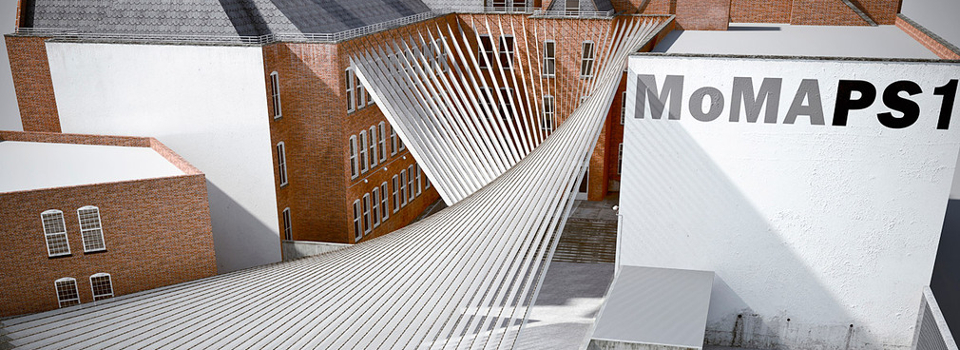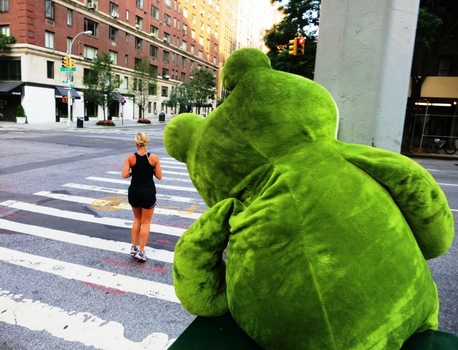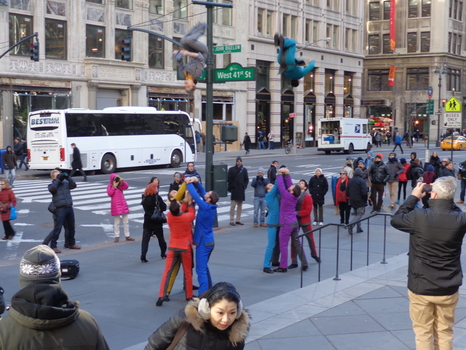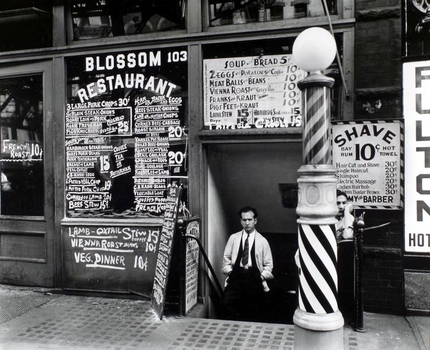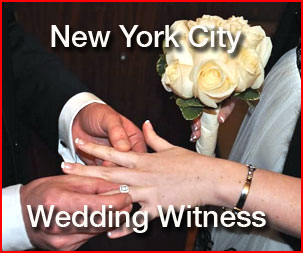“Tommy, get my bag,” My grandmother barked. It was February 1965, I was 11. 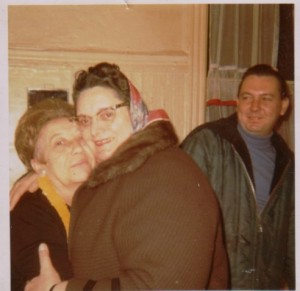
‘Oh, Christ,’ I thought. Slowly, I made my way through the railroad flat looking for Nan’s pocketbook. The gang box weighed more than my little brother, and when I heaved the thing up, I imagined Nan in the audience on Let’s Make A Deal, easily meeting Monty Hall’s challenge to draw an Indian head penny out of her bag, or a 1928 Al Smith for President pencil with Al’s head and big nose on top (I still have that item).
I muscled the bag into the kitchen.
The day before, I bought fruit and got pounded for buying the wrong bananas.
“These rocks won’t be ripe for two weeks, what were you thinking?”
I stared at the naked bulb on the patterned tin ceiling and waited her out. It didn’t matter. She could tell me a hundred times about fruit. I remembered nothing.
When I bought cold cuts she weighed them on an 1896 produce scale from her family’s York Avenue fruit stand. She hung the scale from a planter hook screwed into the wall. If the cold cuts were too thick, she sent me back. If they were underweight, she’d fly out the door. You got one shot at making a mistake or cheating her. The second time it happened you didn’t exist. We were running out of stores.
It was Saturday, and that meant meat shopping. Nan liked Schaller & Weber’s frankfurters, Karl Ehmer’s pork chops and bologna and Herman’s veal cutlets. Plus, Herman threw in a half-pound of skirt steak if he was in a good mood.
Schaller and Weber was my first stop, a major crowd on Saturday’s with a long line. I wanted to play ball sometime that day, so I’d minimize the wait by getting there early. Nan had specific shopping directions for each location.
Schaller and Weber: “Make sure you see the guy’s hands at all I watched the guy’s hands like he was a card cheat. And there he went… “Hey Mister, I don’t want those franks, give me two pounds of these.” I pointed to the glass; the guy gave me a dirty look and put the old franks back below the counter. times. If they drop below the counter, and he comes up with franks, tell him to put them back, and take the fresh ones out of the glass display.”
Leaving Schaller & Weber, Nan’s directions for my next stop came through.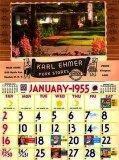
“Tell the guy to leave all the fat on the pork chops.”
The Karl Ehmer butcher loved me. I’d point out pork chops in the glass; he grabbed them and wrapped them in paper. He never even picked up a trim knife.
After Ehmer’s, I’m walked down 85th Street with five pounds of meat in paper bags.
All the dogs I pass on the sidewalk are looking at me funny and moaning. Half way down the block, Nan’s final direction popped up into my head.
“Make sure Herman pounds the cutlets paper thin and throws in the skirt steak. Don’t forget the steak!”
Herman was a problem. He knew my large grandparents bought lots of meat, but only bought part of their meat from him. He wanted all their business. There was no way I’d bring the other meat into his store, he’d torture me and I was too lazy to run it up to my grandmother’s apartment one building away. So, I’d hide it outside the shop. In the gutter hugging the curb, in the basket of the delivery bike, or throw it up on an awning – I had plenty of places but they all had potential consequences. Lots of kids and animals comb the gutter for goodies, and they might pick it up and eat a frank right there. The delivery boy could slip by me and take my meat for an unwanted ride. Up on the awning, pigeons could use the bags for target practice, or I might not be able to find something to reach the bags to get them down.
“Why you so antsy?” Herman asked.
“Huh?”
“What are you looking for?”
“Nothing.”
I was second on line, and Herman was working alone. He was annoyed that I kept asking the lady behind me with the baby, to hold my place, while I checked on my hidden stash.
When it was my turn, Herman leaned over the counter. I could smell his coffee and cigarette breath.
“No franks and chops today?”
He knew. He knew everyone’s meat desires.
“No thank you, Herman, just the cutlets, please give them a good pounding. Nan said, ‘nice and lean.’”
He hit the meat like it was my head. Then he puts my stuff in a bag and eyed me over. I gave him a nod toward the skirt steak with a pathetic look. He grudgingly wrapped a chunk in paper and threw it in the bag.
On the way out, Herman shouted a farewell.
“How long was the line at Schaller & Weber’s?”
The hair on my neck stood up, but I didn’t turn around. I began looking for something to knock the bags off the Chinese Laundry’s awning.


